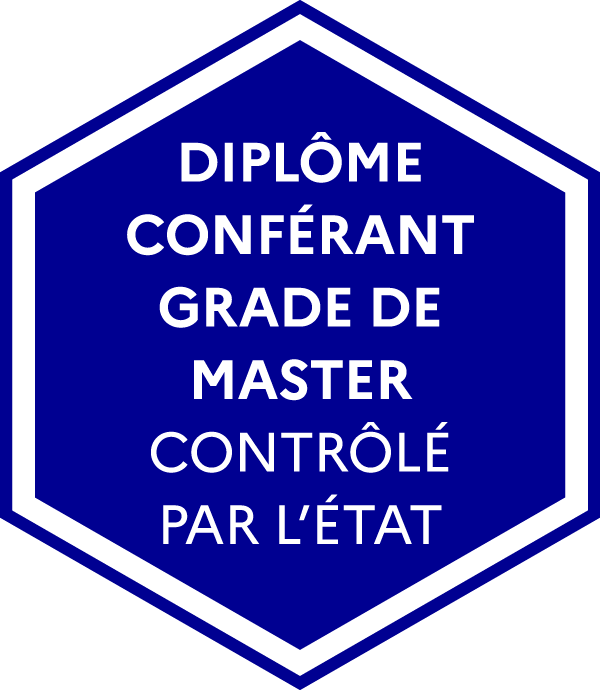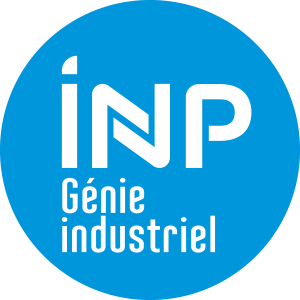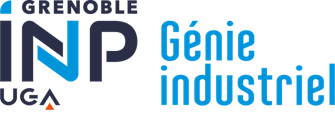
Informations générales
Number of hours
- Lectures 25.5
- Projects -
- Tutorials 4.5
- Internship -
- Laboratory works 16.0
- Written tests -
ECTSECTS
3.0
Goal(s)
Semiconductor technologies are found in many sectors such as product traceability, communication and networks. Telephones, computers, networking, entertainment and traceability have all been revolutionised by semiconductor technologies, which have experienced the greatest industrial progress over the past twenty years and remain a major growth factor for modern economies. However, this domain is generally not very well known.
This course aims at giving students basic knowledge in semiconductor technologies. An explanation of these technologies allows students to then understand managerial aspects of this sector which is undergoing radical restructuring. Industrial engineering possibilities in this sector are immense and often unknown.
This course is divided into three parts:
• It starts with a general immersion into the fascinating world of semiconductor technologies. During this period, sub-micronic manufacturing is presented and some time is spent in a clean-room. Students also learn to design and make an electronic component.
• Secondly, two main presentations take place:
1)the managerial aspects of semiconductor industries
2)the organisations in effect in this industry, both on an international and national level.
As a result, students have a better global understanding of the different aspects of this very specialised environment. This section ends with a visit to a factory.
• The third part includes a presentation of the challenges this industrial sector faces. The content of this final section varies from year to year as it presents recent developments and possible questions concerning the future.
Finally the course ends with an exam (MCQ-Multiple Choice Questions). All practical work is marked. Overall presence at lectures and tutorials is taken into account when giving the final mark.
The course is in French, however, some slides and seminars can be held in English depending on the teacher.
Responsible(s)
Content(s)
Technological Immersion (Lectures = 15 hours / Tutorials = 16 hours):
• Techno-silicon manufacturing (2 x 3 hours)
-how a basic transistor works and producing a wafer (3 hours)
-other technologies such as sensor, imaging, analog...(3 hours)
• Designing a circuit - circuit architecture, digital design, testability, physical implementation of the gate through to the layout (2 x 3 hours)
• Testing and process control structures (3 hours)
• Design and implementation of circuits (8 hours practical work)
• A whole day spent in a clean room - manufacturing (8 hours practical work)
Management and Industrial Engineering of Semiconductors (Seminars = 18 hours):
• Complete flow process from the design stage through to producing silicon (3 hours)
• The environment of a semiconductor - a main actor in local and international economies. Constraints of semiconductor environments (cost, speed, market, production ...) (3 hours)
• Structure of semiconductor organisations (current standard organisations, industrialisation methods, quality and yield animation methods). Structure of the supply chain (eg. companies such as SOITEC, AirLiquide, Dolphin Integration), its strengths and weaknesses (e.g. Applied Materials, Inc. imposes its standards, SOITEC is the only SOI (Silicon on insulator) supplier in the world, consequences of Taiwan earthquake on TSMC (Taiwan Semiconductor Manufacturing Company...) (2 x 3 hours)
• Production management in a semiconductor environment - structures, specificities and problems (3 hours)
• Visit of a factory - facilities (3 hours)
Seminars (12 hours):
• Technological challenges... what next? (3 hours)
• Energy optimisation and its impact on semiconductor careers / power aware design methodologies and processes for circuits (3 hours)
• Plasma physics... a dream of being able to burn more precisely (3 hours)
Test
Calendar
The course exists in the following branches:
- Curriculum - Engineer student Master SCM - Semester 8
- Curriculum - Engineer student Master PD - Semester 8
Additional Information
Course ID : 4GUL11C5
Course language(s): 
You can find this course among all other courses.
Bibliography
Thomas SKOTNICKI, Transistor MOS et sa technologie de fabrication, Techniques de l'ingénieur E2430 (2000)
Thomas SKOTNICKI, Circuits intégrés CMOS sur silicium, Techniques de l'ingénieur E2432 (2000)
Jean MERMET, Langages pour la conception des circuits intégrés, Techniques de l'ingénieur E2452 (2001)
Sorin CRISTOLOVEANU et Francis BALESTRA, Technologie silicium sur isolant (SOI), Techniques de l'ingénieur E2380 (2002) Web: http://ece-www.colorado.edu/~bart/book/book/
French State controlled diploma conferring a Master's degree

Common Core presentation
Programme courses S5
Programme courses S6
Supply Chain Management
Programme presentation
Programme courses S7
Programme courses S8
Programme courses S9
Programme courses S10
Product Design
Programme presentation
Programme courses S7
Programme courses S8
Programme courses S9
Programme courses S10
Contacts
Academic staff
- Head of studies:
Pierre Lemaire - Head of 1st Year Program:
Abdourahim Sylla - Head of Supply Chain Management Program:
Irène Gannaz - Head of Product design Program:
Yann Ledoux
Registrar's office
- Head of Registrar's office:
genie-industriel.scolarite@grenoble-inp.fr - Secretary's office 1st Year:
Valérie Demicheli - Secretary's office 2nd Year:
Sylvie Malandrino - Secretary's office 3rd Year:
Vincente Odier - International relations department:
Nadia Dehemchi


